This post contains affiliate links from which I may receive a small commission, at no extra cost to you. In no way does this affect my opinion or the information I provide on the product. Please read my disclaimer for more info.
Ever since learning that I am vegetarian, a lot of you have been asking for tips on how to become vegetarian, how to eat enough protein while being vegetarian, mistakes that vegetarian people make…
For these reasons, I decided to create a little beginner’s guide to give you the basics on vegetarianism!
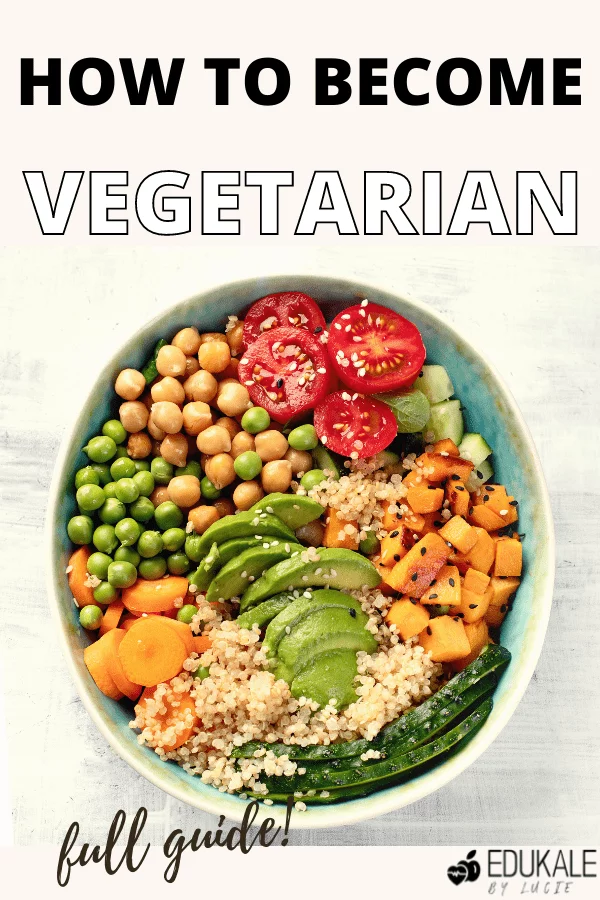
Before I jump into this guide, I do want to make a quick disclaimer:
This guide is not to influence or pressure anyone into any type of diet. You can have a perfectly healthy diet that includes meat, and on the contrary, you can have a completely unhealthy vegetarian or vegan diet. I do encourage my clients to reduce their meat intake and to increase their consumption of plant-based foods however, since the scientific consensus [1, 2] shows that this is what is best for health. But again, this does not mean that you should ban all meat if it’s something you enjoy (unless it’s for ethical reasons of course).
It’s also important to keep in mind that following a vegetarian diet is a privilege. Not everyone has the means to make the choice to cut out animal products. For instance, lower-income communities frequently experience food insecurity and hunger. If someone is worried about whether they will be able to eat or not, it likely does not matter if that meal contains animal products. It can also be a barrier to live in a food desert and have your nearest grocery store with all the healthier/fresher options be very far away.
With these things in mind, here’s the beginner’s guide to becoming vegetarian!
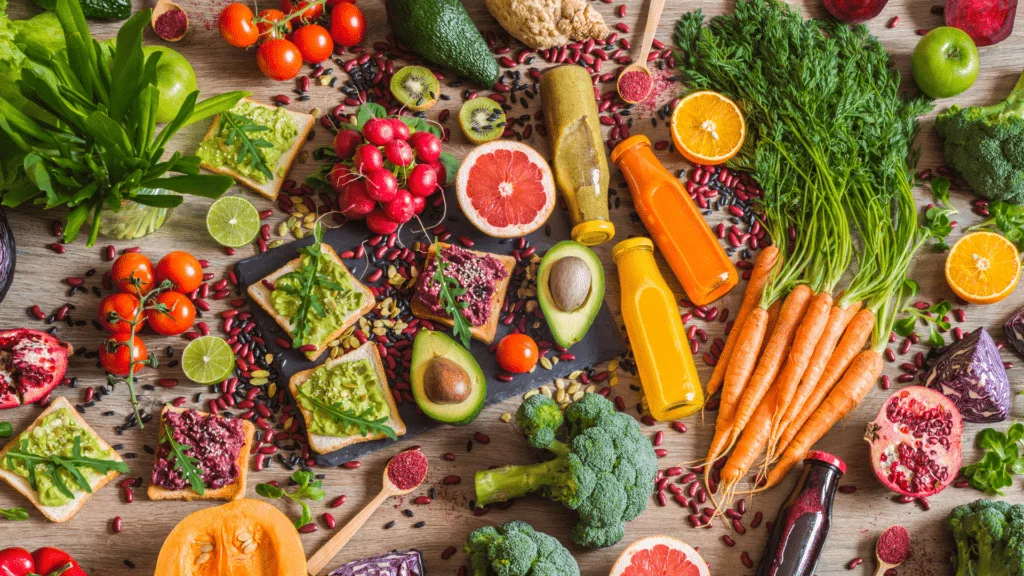
What does being vegetarian mean?
Technically, vegetarians (at least in western countries) don’t eat any meat, fish, or seafood, but they do still eat animal products like eggs or dairy. This is different than plant-based people who don’t consume any type of animal product (no eggs, dairy, honey).
Finally, vegans are plant-based and also exclude animal products from their lifestyles (clothing items containing silk/ wool/ leather, products that are tested on animals, zoos or circuses, etc.)
How to become vegetarian
Start slow, with small steps
With the initial motivation that comes from wanting to become vegetarian, it may be tempting to do everything at once and to decide never to eat meat again. But unless you’ve had an ethical revelation, I would recommend transitioning into a vegetarian lifestyle little by little.
This will help it be more sustainable so that you don’t immediately find it too difficult and give up. It will also help prevent the bloating that may arise when switching from meat-heavy meals to those with more fiber and legumes.
If you eat meat every day, for instance, start out by reducing that to a few times a week, and try to incorporate more fiber-rich foods progressively.
Adapt your favorite recipes
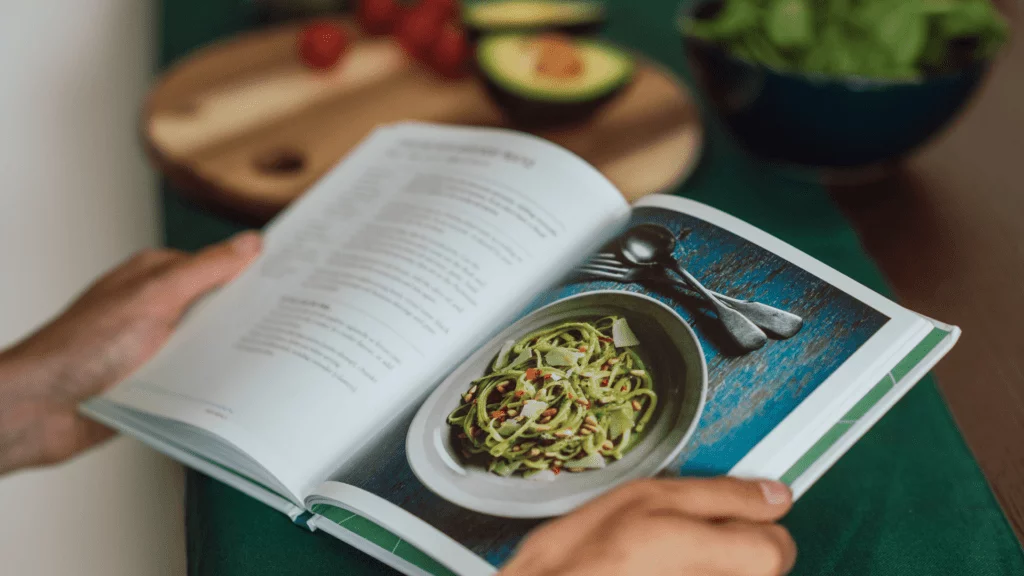
Becoming vegetarian doesn’t have to mean totally changing your meals. You can make the same meals you usually make and just swap out the meat for meat alternatives (like soy-based burgers or hotdogs, etc).
Even though a lot of people advise on replacing meat with only whole foods, I actually find meat alternatives very helpful for an easy transition.
I encourage looking for easy vegetarian cookbooks that specifically help you adapt your usual recipes to meat-free versions. You can also look on Pinterest or Youtube for great recipe ideas.
I would recommend mastering a few recipes at first, then moving on to new ones once you’re comfortable with them.
Stock up your pantry with vegetarian essentials
I recommend always having a bunch of vegetarian non-perishable items in your pantry to make cooking easier. My favorite essentials include canned/jarred foods like black beans, kidney beans, white beans, chickpeas, corn, lentils, green peas, or green beans.
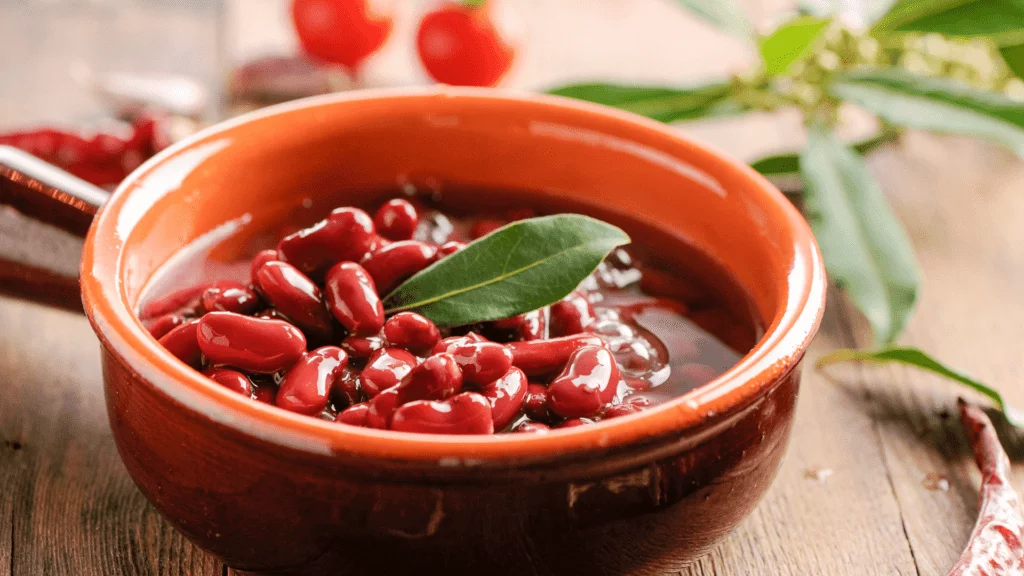
I also love dried fruit, nuts and seeds, and nut butter. As for grains, I always have whole-wheat pasta, brown rice, bulgur, couscous, quinoa, and oats.
You can also stock up on frozen fruits and veggies, and each time you go grocery shopping, make sure to get some fresh ones as well, along with tofu, eggs, milk, and yogurt if you enjoy them!
Watch your protein (and iron) intake
Your body can’t really store protein, so it’s important to get enough quality protein from your food every day. While meat is an important source of protein, getting enough protein on a vegetarian diet is relatively easy— it just takes a little extra planning!
Some good sources of plant-based protein include tofu, oats, edamame, corn, chickpeas, lentils, beans, nuts, quinoa, whole-wheat pasta… As a vegetarian, eggs and dairy contribute to your protein intake as well. Check out my article on protein for more information!
In addition, if you’re used to eating a lot of red meat or seafood, be mindful of your iron levels and make sure that you’re eating plenty of foods like spinach, beans and legumes, tofu, dark chocolate…
If you can, eat them with a source of vitamin C to boost iron absorption! Check out my article on iron-rich foods for more information.
How to eat out as a vegetarian

Depending on where you live, it can be a little bit difficult to eat out as a vegetarian. I would recommend checking the menu or calling first to make sure that there is a vegetarian option. If not, you can always find a few different sides to eat like some fries, a salad, some pasta, etc! It’s also possible to ask for some small modifications, like removing the ham from pizza or the shrimp from rice.
If you’re eating at someone’s house, I would suggest casually mentioning that you’re vegetarian beforehand. In most cases, people will make sure that there’s a vegetarian option available for you without going out of their way to make you a whole extra meal.
Common mistakes new vegetarians make
The first mistake that new vegetarians make is thinking that vegetarianism is equated to health. This is obviously not true— a lot of junk foods are vegetarian and you should still make sure to get adequate healthy nutrients as a vegetarian.
Another common mistake is not eating enough. Plant-based foods are, in general, less calorie-dense than meat, so it may take a little more volume to make sure you are full. Just removing the meat from your plate without replacing it with a plant-based alternative will likely result in you not eating enough.
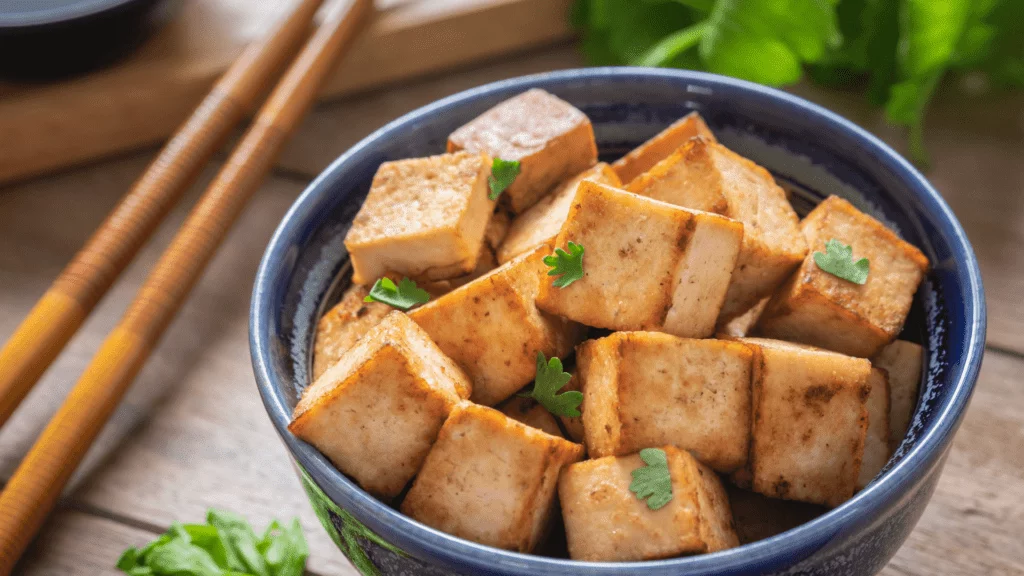
Finally, the last mistake a lot of new vegetarians make is being too hard on themselves. They want to be perfect from the beginning, have perfectly balanced vegetarian meals, and never touch meat again. While some people are able to do that, it’s not realistic for most people, and it’s important to be easy on yourself if you slip up.
It’s better to be mostly vegetarian and have meat once in a while than to refrain from it altogether because you want to be perfect! In addition, being vegetarian may not be the best option for you if you are recovering from an eating disorder or from a very restrictive diet, for instance.
Remember that switching up your diet is a long process that looks different for everyone!
In short…
Hopefully this article was useful to any new vegetarians or people considering becoming vegetarian. Remember to have a pantry full of vegetarian essentials, to adapt your favorite recipes, to watch your protein intake…and take it easy! Don’t hesitate to read my article on healthy eating for beginners for more information on healthy eating in general.
Lucie
If you’re interested in nutrition, its impact on our health, and the science behind it, you should definitely read How Not to Die. In this book, Doctor Michael Greger, founder of Nutrition Facts, examines the top causes of death in America and explains how your diet can prevent— and in some cases even reverse— them. His advice is all backed by science and he writes in a very clear and entertaining way. This book isn’t a list of what you already know. It will teach you the keys to living a long healthy life, in a simple and practical way, and without spending fortunes on supplements and pills!
PLUS if you want to take it a step further, you can check out the How Not to Die Cookbook to implement the advice easily!


